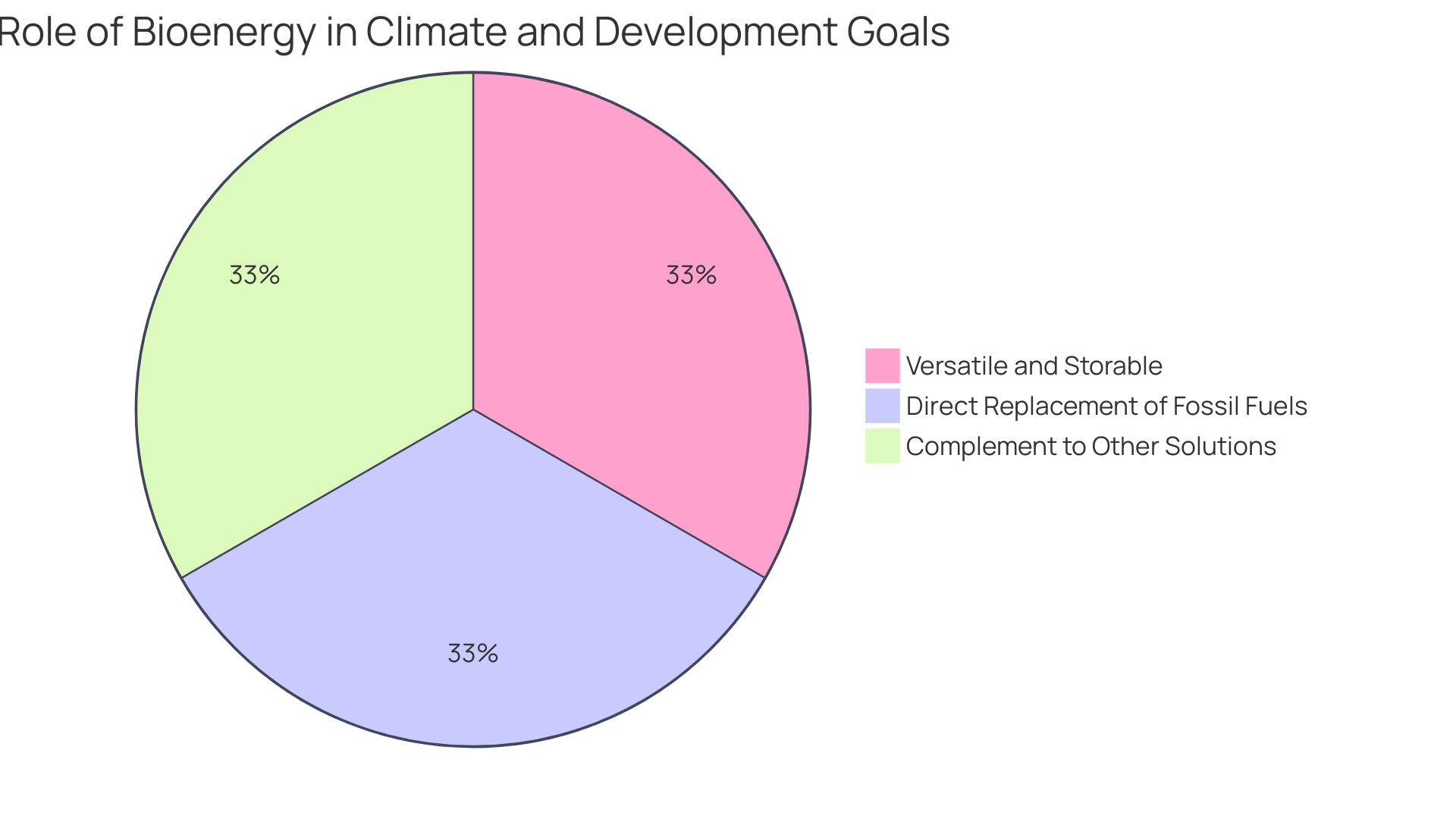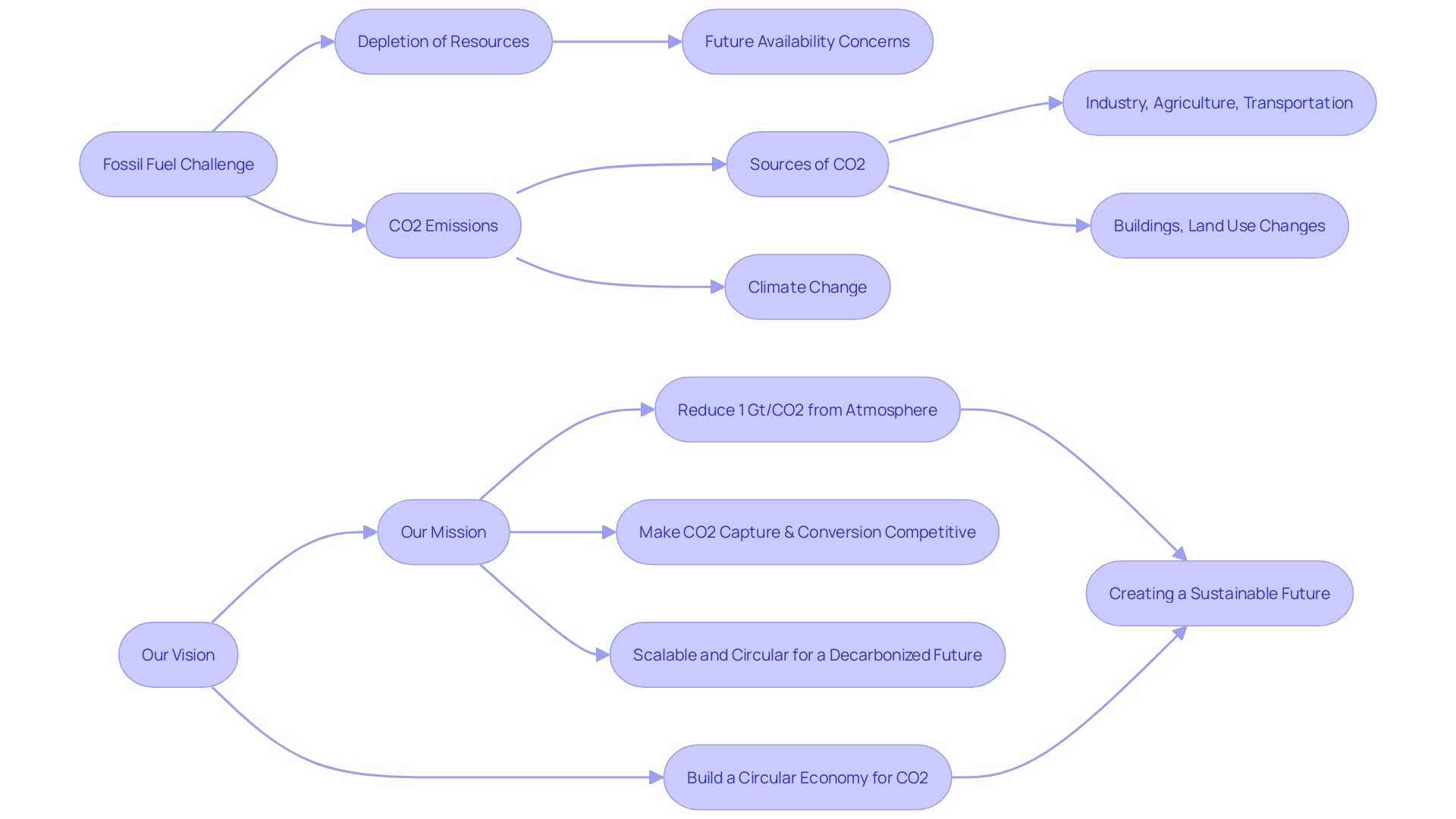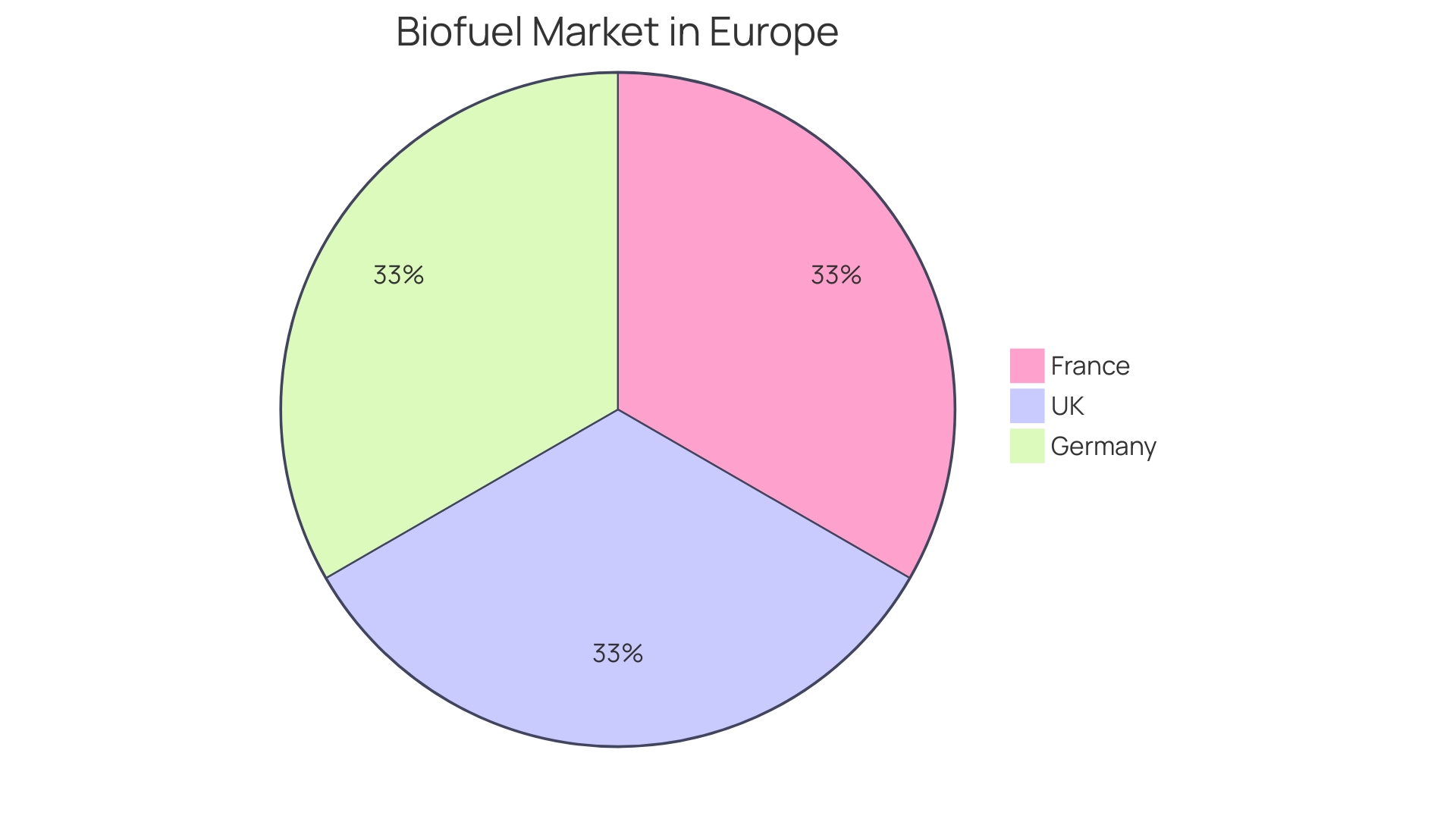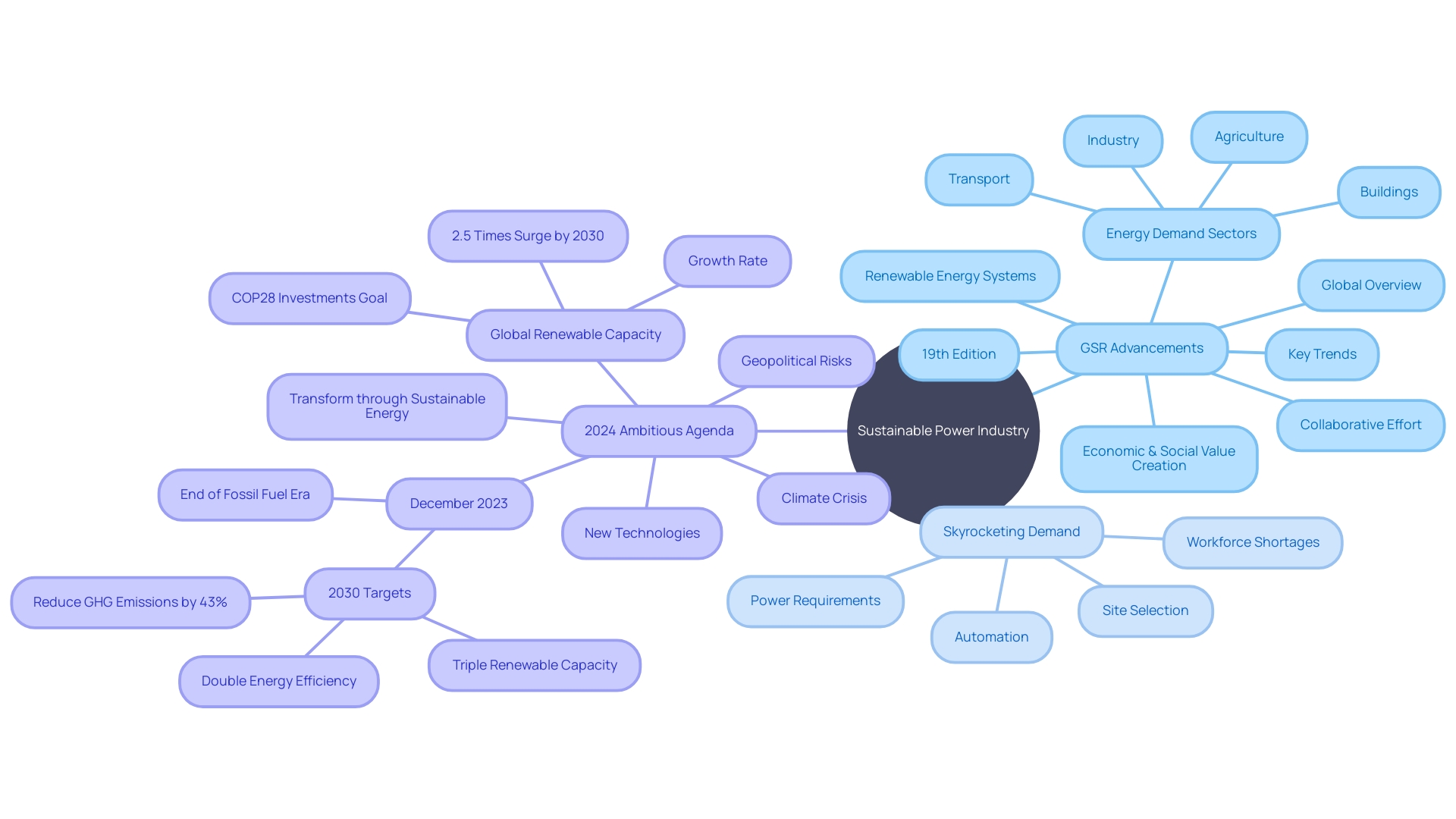Introduction
Harnessing the power of biofuels is a key step towards a resilient and sustainable energy landscape. Derived from biological sources, biofuels are emerging as viable alternatives to conventional fossil fuels in various sectors. The recent progress in the European Union exemplifies the potential of biofuels in enhancing energy security and supporting environmental objectives.
However, the technical challenge of converting plant matter into fuel has been a focal point for researchers. Advancements in biorefinery technologies and the optimization of lignin utilization are crucial for economically and environmentally sustainable biofuel production. Solix Biofuels, at the forefront of biofuel innovation, has revolutionized renewable energy production through its unique approach.
By harnessing microorganisms like algae, Solix Biofuels exemplifies forward-thinking in the renewable energy landscape. The economic and environmental benefits of biofuels, including job creation, greenhouse gas emission reduction, and energy security, make them a promising solution. Solix Biofuels distinguishes itself through its algae cultivation methodology, advanced technologies, and commitment to scalability and cost-competitiveness.
Lessons learned from Solix Biofuels highlight the importance of innovation, strategic alliances, and investment in research and development in propelling the renewable energy sector forward. The renewable energy landscape is characterized by breakthroughs and continuous innovation, driving the transition towards a sustainable and renewable energy future.
The Importance of Biofuels in Renewable Energy
Utilizing the potential of alternative fuels signifies a revolutionary measure towards a stronger and eco-friendly power scenery. These renewable fuel carriers, derived from biological sources like plant materials and agricultural byproducts, are positioning themselves as viable replacements for conventional fossil fuels across multiple sectors. For example, transportation, power generation, and heating can all gain advantages from the integration of alternative fuels, resulting in a notable decrease in greenhouse gas emissions and promoting diversification of power sources.
Recent progress in the European Union illustrates the potential of biofuels in enhancing energy security while supporting environmental objectives. In 2021, indigenous biogas production in the EU increased to 14.9 million tons of oil equivalent, boosted by a strategic shift to promote biogas and biomethane as part of the REPowerEU plan. This plan aims to reduce reliance on imported fossil fuels by accelerating the production of sustainably-sourced biomethane. Germany, Italy, and France have emerged as leaders in this domain, collectively contributing significantly to the EU's total production.
The technical challenge of converting plant matter into fuel has been a focal point for researchers. Lignin, a robust component of plant cell walls, provides both structural strength to plants and resistance to microbial degradation, which complicates its extraction and utilization. Nevertheless, progress in biorefinery technologies propose that maximizing the utilization of lignin is crucial for a financially and ecologically viable production process of alternative fuel. This emphasis on lignin valorization is a component of a wider approach to exploit second-generation fuel operations that utilize non-edible plant biomass, such as wood residues, sugarcane bagasse, or corn stover, thus avoiding competition with food production.
The global biofuel sector has experienced over two decades of practical application, with ethanol emerging as a noteworthy example of an effective oil alternative. The advantages of ethanol extend beyond its role as a fuel, contributing positively to climate change mitigation, rural development, farming, independence, and air quality. As the transportation sector evolves to meet new climate targets, the role of alternative fuels like ethanol must be reassessed and reimagined to capitalize on their sustainable potential.
Together, these observations and progress highlight the significance of biofuels in the ongoing shift to sustainable sources of power. As we continue to explore the intricate dynamics of bioenergy, the cumulative knowledge and experience gained from global efforts will be instrumental in shaping a future that prioritizes both ecological integrity and security.

Case Study: Solix Biofuels' Innovative Approach
Leading the way in renewable energy innovation, Solix Biofuels has utilized state-of-the-art technology to transform the production of sustainable energy from organic matter. Their distinctive approach goes beyond traditional methods, utilizing advanced processes for efficient conversion of renewable fuel. As the industry grapples with challenges such as the intricacies of lignin extraction from biomass and the economic hurdles of bioenergy production, Solix Biofuels maintains a steadfast dedication to sustainability, ensuring their operations are not only eco-friendly but also cost-effective. Their commitment to environmental stewardship and economic viability exemplifies the industry's potential to transform transportation fuel, generate electricity, and create alternatives to petroleum-based products, all while supporting a circular economy for carbon dioxide and contributing to the global mission of a decarbonized future.

Key Technologies and Processes
Solix Biofuels is at the forefront of leveraging microorganisms for sustainable fuel production, particularly through the cultivation of algae. Algae, with their innate photosynthetic capabilities, are a promising avenue for the creation of biofuels. They have the remarkable ability to utilize sunlight and carbon dioxide to generate biomass, which serves as the precursor to biofuel extraction. The procedure not only helps in decreasing greenhouse gas emissions but also combines with existing power infrastructures, assisting a wide range of sustainable power sources.
The company's innovative approach harnesses the potential of these simple yet efficient organisms, which are increasingly recognized for their role in addressing environmental challenges associated with traditional fossil fuels. The strategic extraction and purification methods employed by Solix Biofuels ensure that the resulting biofuels are of high purity, have excellent power content, and contain minimal impurities. This dedication to quality and efficiency reflects a broader commitment within the industry to enhance sustainable power technologies, as evidenced by the pioneering work of experts like Professor Andrzej Vogt from the University of Wroclaw, whose contributions to the field of alternative fuel innovation continue to inspire advancements.
The significance of algae as a sustainable biofuel source is underscored by the global ethanol market's expansion, with production expected to hit around 110 billion liters by 2020, growing by approximately 33% over the past decade. As the industry advances, the incorporation of biofuels into the mix emerges as a vital component of a forward-looking strategy, one that aligns with the insights of experienced professionals in the sector who advocate for more efficient, less land-intensive biomass feedstock production methods. 'Solix Biofuels' algae-based technology exemplifies the type of progressive mindset that is shaping the sustainable power landscape and propelling the transition towards more environmentally friendly fuel alternatives.
Challenges and Solutions in Biofuel Production
Progress in fuel production derived from biological sources is crucial for the shift to sustainable energy, and organizations such as Solix Biofuels are leading the way in addressing some of the industry's most urgent obstacles. A significant hurdle in biofuel development is achieving scalability. Solix Biofuels has developed systems that enhance production capacities across various geographical regions, streamlining the creation of renewable fuels in an economical way. Working to guarantee that alternative fuels can compete economically with conventional fossil fuels, Solix Biofuels optimizes its production processes, with the goal of reducing costs and improving the financial feasibility of these fuels.
Educational institutions are involved in studying the impact and potential of alternative fuels. At Waubonsee Community College, students engaged with a case study on Sustainable Aviation Fuels (SAFs), using the Greenhouse Gases, Regulated Emissions, and Energy Use in Technologies (GREET) model. This case study, developed in collaboration with Argonne National Laboratory, not only broadened the students' educational experience but also highlighted the interdisciplinary nature of biofuels, touching on aspects from software to environmental considerations.
On the technical front, researchers are making progress in the utilization of plant matter for fuel production. A team from UC Riverside tackled the challenge of lignin extraction, a key component that provides structural integrity to plants, making it resistant to breakdown. Their work highlights the requirement for biorefineries to enhance processes that can efficiently utilize lignin, a step that could result in more competitive fuel production.
Further, breakthroughs at Washington State University have shed light on the intricacies of the Fischer Tropsch catalytic conversion process, which has been a mainstay in the industry for over a century. Controlled rate oscillations, discovered by researchers, could lead to a paradigm shift in catalyst design and the overall efficiency of the process.
The alternative fuel market is also experiencing significant growth in Europe, driven by the adoption of ethanol, biodiesel, and renewable diesel. With proactive policies and initiatives by the European Union, Europe is poised to become a rapidly expanding market for biofuels.
Experts like Brian, with extensive experience in forestry and supply chain management, and Ric, with over four decades in the environmental sectors, contribute their in-depth knowledge to the ongoing evolution of the biofuel industry. Their knowledge is crucial in navigating the intricacies of large-scale projects and shaping policies that promote sustainable solutions.
Bioenergy, as a renewable resource derived from biomass, holds the promise of revolutionizing the power landscape. Its potential extends beyond transportation fuels to producing heat, electricity, and alternatives for petroleum-based products. The success of bioenergy hinges on balancing efficiency with cost-effectiveness, a challenge that the industry continues to address through innovation and research.

Economic and Environmental Benefits
Biofuels, including those produced by companies like Solix Biofuels, are gaining prominence as a sustainable source with both economic and environmental advantages. Economically, alternative fuel sources are catalysts for job creation and growth, especially in rural communities where renewable energy feedstocks are grown, fostering agricultural advancements. This not only helps in stimulating local economies but also plays a role in enhancing energy security by diminishing reliance on imported oils.
Environmentally, alternative fuels are instrumental in combating climate change. They provide a substantial decrease in greenhouse gas emissions when compared to fossil fuels, thanks to their sustainable nature and the potential for sustainable production methods. Innovations in biomass utilization, such as the work being done by UCR, Oak Ridge National Laboratories, and the National Renewable Energy Laboratory, have highlighted non-edible plant materials like poplar trees as optimal feedstocks, circumventing the issues associated with first-generation biofuels that compete with food resources.
The worldwide fixed fuel cell market, projected to expand at a CAGR of 12.07% until 2031, highlights the growing need for sustainable power technologies. Ethanol, with over two decades of proven efficacy as an oil alternative, continues to evolve with the bio-based economy, contributing to climate action, rural development, and self-sufficiency.
Moreover, the global emphasis on sustainable power sources is not just an issue of ecological importance but also a tactical step towards generating quality employment opportunities, as demonstrated by the 7.4 million jobs in the field of sustainable power in China and notable employment statistics in the EU, Brazil, the US, and India. Solar PV has emerged as a leading sector for job support, thanks to considerable investments and manufacturing expansions.
The cost-effectiveness and dependability of solar and wind power in the United States demonstrate the transition towards fair power distribution, emphasizing the capacity of sustainable sources to alleviate economic burdens linked to electricity expenses, and promoting enhanced well-being and security through energy efficiency measures.
The shift to biofuels is a strategic approach to attain a sustainable, equitable future, ensuring a healthy environment for all, while fostering economic growth and job creation.
Comparative Analysis with Other Biofuel Initiatives
Solix Biofuels sets itself apart in the arena of sustainable power through its distinctive algae cultivation methodology. Unlike conventional biofuel projects that depend on established feedstocks such as corn or sugarcane, Solix Biofuels taps into the potential of algae—a vast and varied group of aquatic photosynthetic organisms. Algae's capacity to flourish in various environments, including non-arable land, and their remarkable biomass yields, make them a promising alternative in the pursuit of sustainable and renewable power sources.
Furthermore, Solix Biofuels has incorporated advanced technologies and processes to improve the quality and fuel content of the biofuels produced. This commitment to technological advancement is reflected in the wider bio-based economy, as evidenced by the changing utilization of ethanol—a renewable fuel with more than twenty years of practical implementation demonstrating its efficiency as an alternative to oil. The bio-based sector's ongoing technological advancements have yielded substantial benefits for climate control, rural areas, agriculture, self-sufficiency, and air quality.
Finally, scalability and cost-competitiveness are at the core of Solix Biofuels' strategy, positioning the company to compete effectively in the biofuel industry. This approach aligns with the global stationary fuel cell market's expected growth, which is projected to expand at a compound annual growth rate (CAGR) of 12.07% from 2022 to 2031, reaching a valuation of US$ 13.41 billion. These advancements highlight the significance of investing in future systems that are not only sustainable but also economically viable.
Lessons Learned and Future Directions
The development of Solix Biofuels highlights the importance of innovation and strategic partnerships in driving the sustainable power industry ahead. Solix Biofuels emphasizes that investment in research and development is crucial to advancing technology and operational efficiency within the sustainable power sector. This commitment is echoed by industry leaders who recognize that joining forces with academic institutions, government bodies, and industry stakeholders can amplify the impact of their innovations. For example, the international collaborations seen at the Soleolico event, where experts gathered from different parts of the world including Sweden, India, and the UAE, highlight the global effort to promote sustainable solutions for power. This collaboration was additionally exemplified by the discussions on cybersecurity in power led by Betania Allo and the presentation on sustainable power and security by Adam Roosevelt, CEO of AR International Group of Companies.
In the pursuit of a sustainable future, it is clear that alternative power sources are not only becoming more advanced but are also tackling various challenges such as CO2 emissions. Soleolico's distinctive wind turbine combines photovoltaic panels, showcasing a groundbreaking method to harnessing both wind and solar power in a singular system. This mirrors a wider pattern in sustainable power research to develop hybrid systems that surpass the restrictions of weather-reliant power sources such as solar cells.
The sustainable power scenery is marked with advancements that provide a peek into a cleaner, more effective future. For example, the Technion Faculty of Materials Science and Engineering recently unveiled a novel method for green hydrogen production, marking a significant stride towards reducing reliance on fossil fuels. Similarly, the National Ignition Facility's accomplishments in net gain from fusion reactions signify monumental progress in fusion power, a field that has been tantalizingly close to providing a limitless source of clean power.
Solix Biofuels is on a mission to not only improve biofuel production but also to impact the wider renewable power narrative, aligning with the shared goal of industry experts to contribute to a more sustainable and renewable future. The collective efforts to develop and refine energy technologies, as seen in recent presentations and research findings, underscore the importance of continuous innovation and collaboration in the journey towards energy transition.

Conclusion
In conclusion, biofuels are vital for a resilient and sustainable energy future. They offer economic benefits, such as job creation and enhanced energy security, while reducing greenhouse gas emissions. Solix Biofuels exemplifies innovation in the renewable energy sector, harnessing algae and advanced technologies for scalable and cost-effective biofuel production.
Advancements in biorefinery technologies and optimizing lignin utilization are crucial for sustainable biofuel production. Institutions like Waubonsee Community College and UC Riverside contribute to understanding biofuels' impact, while breakthroughs at Washington State University improve efficiency in plant matter utilization.
Biofuels, including Solix Biofuels' products, stimulate job creation, enhance energy security, and reduce greenhouse gas emissions. Integration of biofuels into the energy mix is vital for a sustainable future. Solix Biofuels' unique algae cultivation methodology and commitment to scalability align with the growing stationary fuel cell market.
Innovation, strategic alliances, and research and development investment drive the renewable energy sector. Collaborations between industry leaders, academic institutions, and stakeholders amplify the impact of innovations and foster sustainable energy solutions.
The renewable energy landscape is characterized by continuous breakthroughs. Solix Biofuels and other initiatives contribute to a cleaner and more efficient future. Continuous innovation and collaboration are essential in the journey towards energy transition.
In summary, biofuels are a promising solution for a resilient and sustainable energy landscape. Solix Biofuels' innovative approach and commitment to scalability drive the renewable energy sector forward. By addressing challenges and leveraging advancements, the sector can make significant progress towards a sustainable and environmentally friendly energy system.




